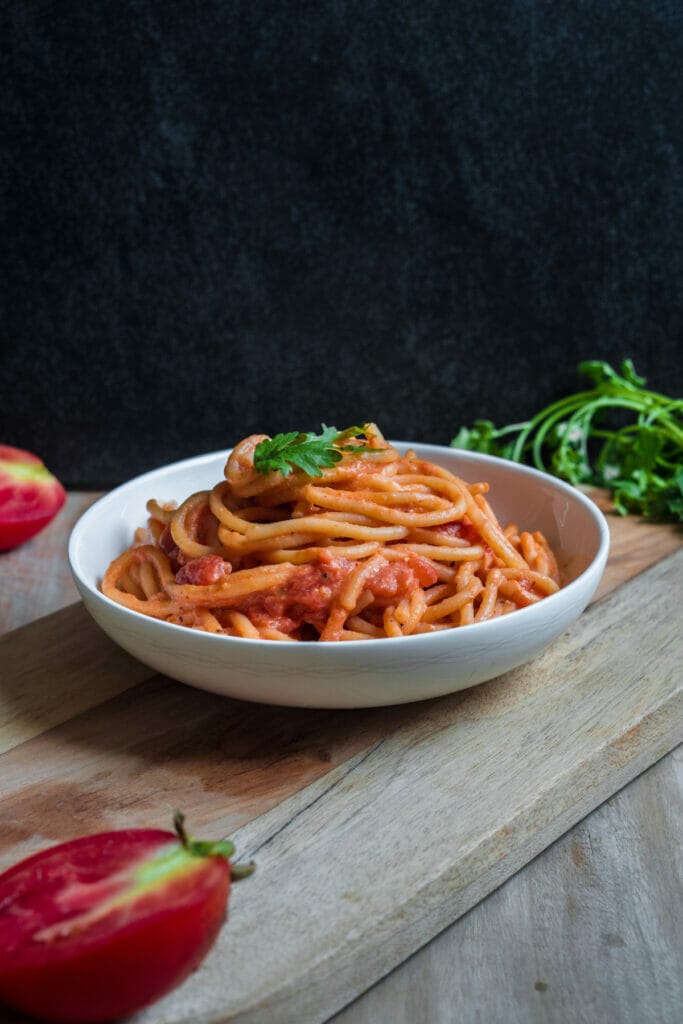Follow Us Part of HuffPost Food & Drink. ©2022 BuzzFeed, Inc. All rights reserved.
Regular pasta-eaters know to strive for al dente, but multi-tasking in the kitchen can lead to overcooking, even for the most experienced chefs.
Unless youre craving the soggy-noodled chicken soup from your childhood days, overcooked pasta does not make for an enjoyable dinner experience. Plus, the longer pasta is cooked, the more negatively it can impact your blood sugar — and thats no joking matter!Advertisement
Even though the glycemic index problem can’t be fixed, we’ve found a quick fix to at least save the flavor of overcooked pasta. If youre often guilty of the overcooking blunder, listen up!.
Sauteing mushy pasta in a pan with olive oil or butter can help it regain its firmer texture. In order to do this, add the olive oil or butter to a pan and warm over medium heat. Saute the pasta for three to seven minutes, and the edges will become crisp. Parmesan cheese or a white wine and cream sauce usually complement this newly repaired dish well.
Alternatively, you can cover up the gloppy, unpleasant texture of overcooked pasta by adding a rich sauce or crunchy vegetables.
Let us know in the comments if you have any techniques you use to save ruined dishes.
Follow HuffPost Taste on Twitter, Facebook, Pinterest, and Tumblr to read more articles.
GET A FREE NO-FUSS COOKBOOK & SECRET HACKS!
This is your downloadable, ad-free key to cooking success!
Yes, you can eat overcooked pasta.
It isn’t harmful to your health.
However, because overcooked pasta is gummy and has a soft, crumbly texture, many people dislike it and require these handy fixes.
Check out this guide for more information on how to determine when pasta is done (or overcooked).

Reason 1: The core of noodlesThe ideal condition of ramen noodle is having different texture between the surface of the noodle and the core of the noodle. The surface has more water, so it is slippery. But the core of the noodle is firm. This is what gives ramen noodles its distinct texture.And this is the reason why you find ramen noodles yummy. When noodles absorb too much water, water reaches into the core of noodles. The surface of the noodles and core of noodles have the same texture.
Finish your ramen before the soup cools and the noodles become mushy.
FAQ
How do you make soggy noodles firm?
The Sautéing Procedure: By sautéing the goopy pasta, the desired firm texture can be restored. To make overcooked pasta firm, sauté it in a little butter or olive oil in a pan. Although sautéing will give the edges that crispy texture, be careful not to overcook it and cause it to burn.
Why did my noodles turn to mush?
Because of this, the temperature of the water drops considerably when the pasta is added. More so than if you were using a larger pot. The pasta gets clumpy and mushy while waiting for the water to boil again, which can take some time.
How do you fix too much pasta in soup?
If you’ve already added the noodles from the start, the only way to save the soup is to thin it out with additional broth so the noodles have some room to spread out.
Why are my noodles mushy in my chicken noodle soup?
Mushy noodles, the outlet explains, are the result of overcooking. This happens when the noodles are put into the soup too early in the cooking process, giving them plenty of time—too much time—to cook.